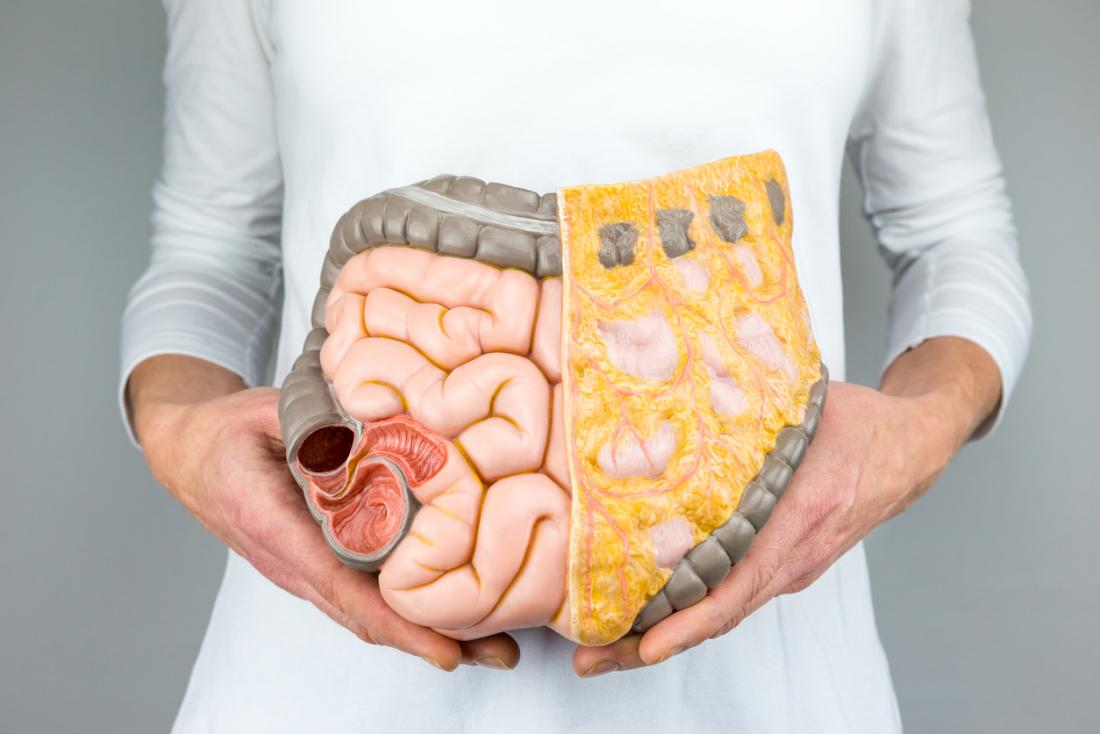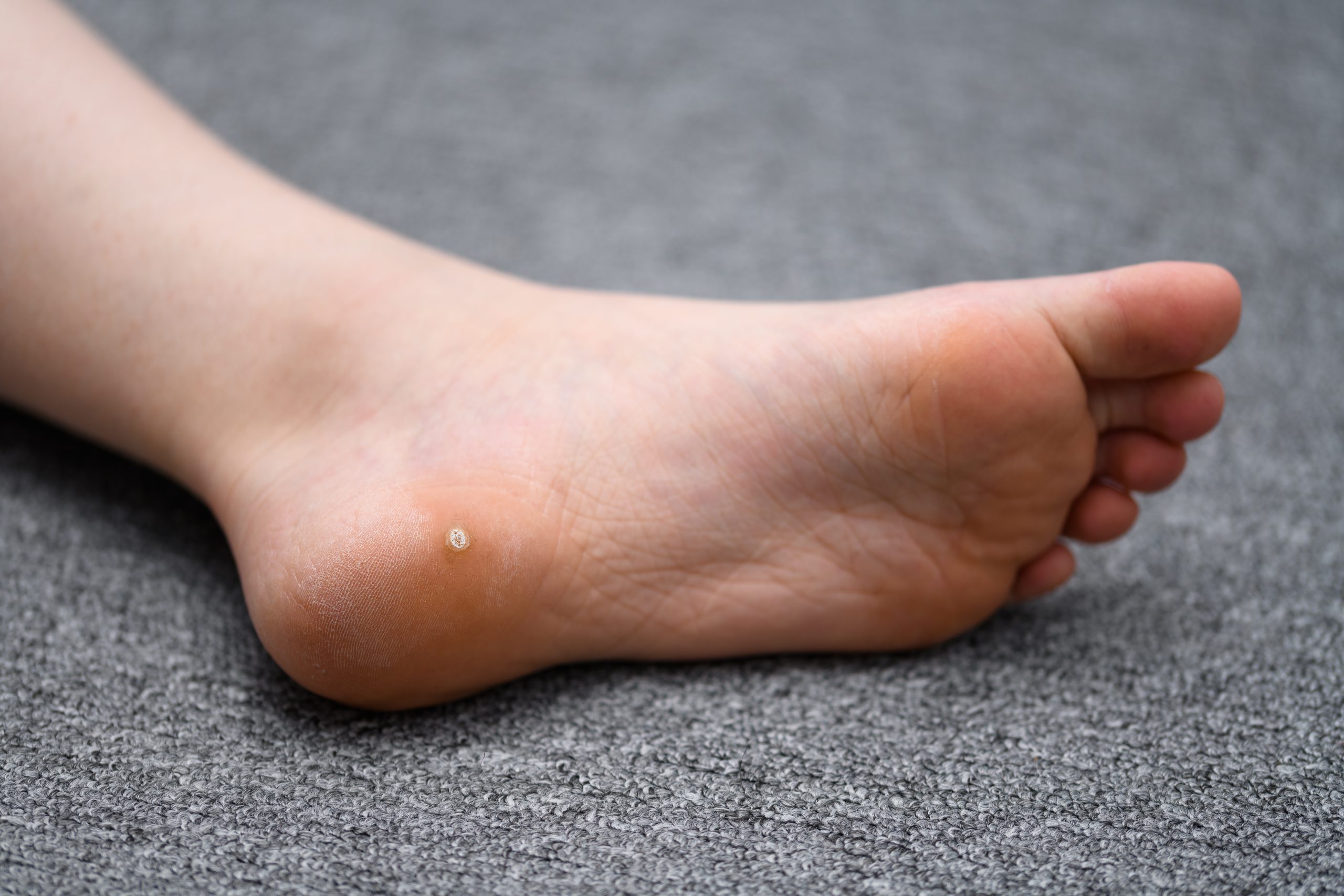Tensed about feeling nauseated after eating? Stop worrying then.
We are going to discuss the reasons for nausea after eating and easy ways of overcoming them correctly in this article.
When you feel uneasiness right after you’ve taken a meal and also feel like vomiting, that is called nausea, often time you may feel it after eating which is a result of food poisoning or gastritis.
Here you will find about:
- What is nausea and its common causes
- Common causes of nausea
- How our digestive system works
- Reasons for nausea
RELATED: 9 Essential Oils for Vomiting & Nausea Plus How to Use
What is Nausea and its Common Causes?
Nausea is a sensation of discomfort that you may feel in your upper abdomen. [1]
Nausea is accompanied by the urge of vomiting though it doesn’t necessarily lead to vomiting always.
Nausea often causes the utmost uneasiness for you.
The urge of vomiting is such a bad feeling that it alone can take all your stamina down in no time.
Common causes of nausea may include:
- A viral infection which is also known as stomach flu
- too much eating or drinking
- car sickness, sea sickness
- food poisoning
- pregnancy
How Our Digestive System Works?
The digestive system of our body works with a fixed goal of breaking down all the foods and drinks that we consume.
The system breaks down our consumption and converts food nutrients into energy that our body stores and uses for functioning. [2]
The process of digestion begins in the mouth.
Food gets broken down into little pieces which get along with all the enzymes that secret from within.
Once swallowed, the food takes the path of the food pipe and reaches to the stomach first and then the intestines.
Both the stomach and intestines secrete digestive juices which incorporate with the food and extract the nutrients from them. [3]
The wastes then travel through the intensities towards the anus for excretion.Nausea occurs when there is a problem regarding this whole digestive process.
If anything starting from the food swallowing to the waste excretion goes wrong, that may result in nausea.
The large scale of food breaking happens in the upper abdomen of our body. So usually the symptoms of nausea develop in that area causing discomfort to you.
When the symptoms develop, our body reacts to this problem by creating the urge of vomiting.Sometimes the urge may end up in real throwing out.
Once our body throws out the semi-digested food, it starts to feel better. [3]
RELATED: 7 Essential Oils for Gut Health & Gut Flora
What Are the Reasons for Nausea?
1. Stomach Flu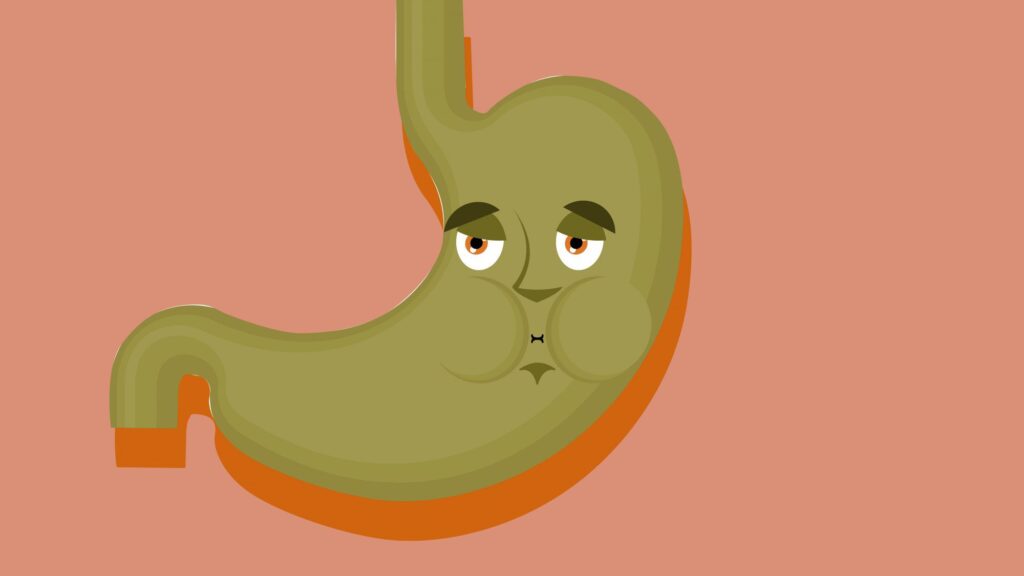
Stomach flu is a viral infection in your stomach that can lead to nausea right after you consume a meal. [4]
Stomach flu usually occurs due to the consumption of contaminated food or water.
These viruses can cause inflammation in your stomach and intestines which can lead to many other health problems including fever, nausea, vomiting, abdominal pain and diarrhea.
RELATED: 12 Natural Ways to Get Rid of Nausea (with Step-by-Step)
2. Food Poisoning
Sometimes, overeating or eating of too much heavy and oily food can cause a digestive disorder defined as food poisoning.
Food poisoning often leads to nausea.
3. Hormonal Changes
Hormonal changes are normal with age. But some changes can cause a little imbalance in your natural health and cause discomfort.
While your body goes through such changes, you can feel nauseated after eating anything.
It goes away on its own after sometime.
4. Gastrointestinal Problems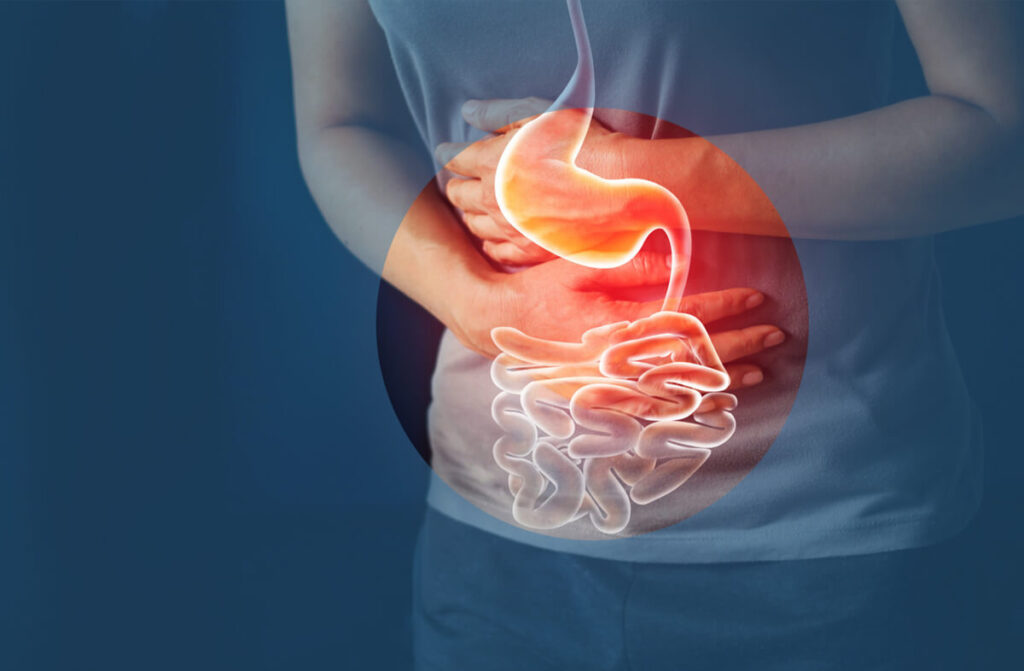
The problems that usually occur in the abdominal area involving stomach and intestines are known as gastrointestinal problems.
These problems are often the key reasons for causing nausea.
-
Gastritis :
Gastritis refers to an inflammation in your stomach area. Mostly bacteria causes gastritis that hampers the stomach area causing inflammation in the stomach lining resulting in nausea.
Also, with too much stress, some medications, and over intake of alcohol may also cause gastritis.
A common symptom of gastritis is nausea accompanied by excessive gas and stomach ache.
-
IBS
IBS refers to Irritable Bowel Syndrome.
IBS is a critical condition of your body which sometimes interferes with your digestive system leading to nausea. [6]
This syndrome hampers the proper digestive system which causes difficulties in the digestion of some foods.
It is a serious problem that causes nausea, gas, stomach aches and heartburn.
-
Gallbladder problems
Sometimes, the digestive fluid in the gallbladder hardens up resulting in gallstones.
Gallstones can cause pain in the upper abdominal area and also make you feel nauseous after food consumption. [7]
-
Gastroesophageal problems
Gastroesophageal problem is also known as acid reflux.
It causes abdominal pain due to the inability of the esophageal tube to transfer the semi-digested food contents to the stomach area.
It often results in too much acidity leading to nausea.
This problem gets accompanied by heart burns, bad breath, chest pain and also breathing problems.
5. Heart Burns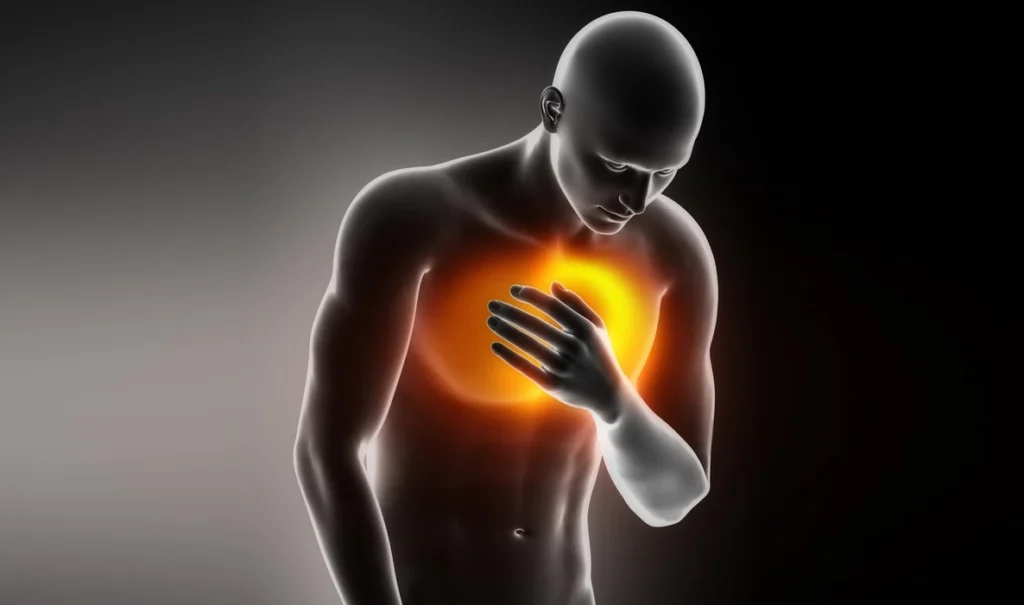
You may often feel some burning sensation in your chest which is a result of heart-burning caused by too much acidity.
This problem occurs due to the consumption of too many fats.
Heavy foods that contain a lot of oil or butter can be bad for your heart’s health and cause burning which often leads to nausea.
RELATED: 12 Home Remedies for Heartburn That’ll Actually Work
6. Psychological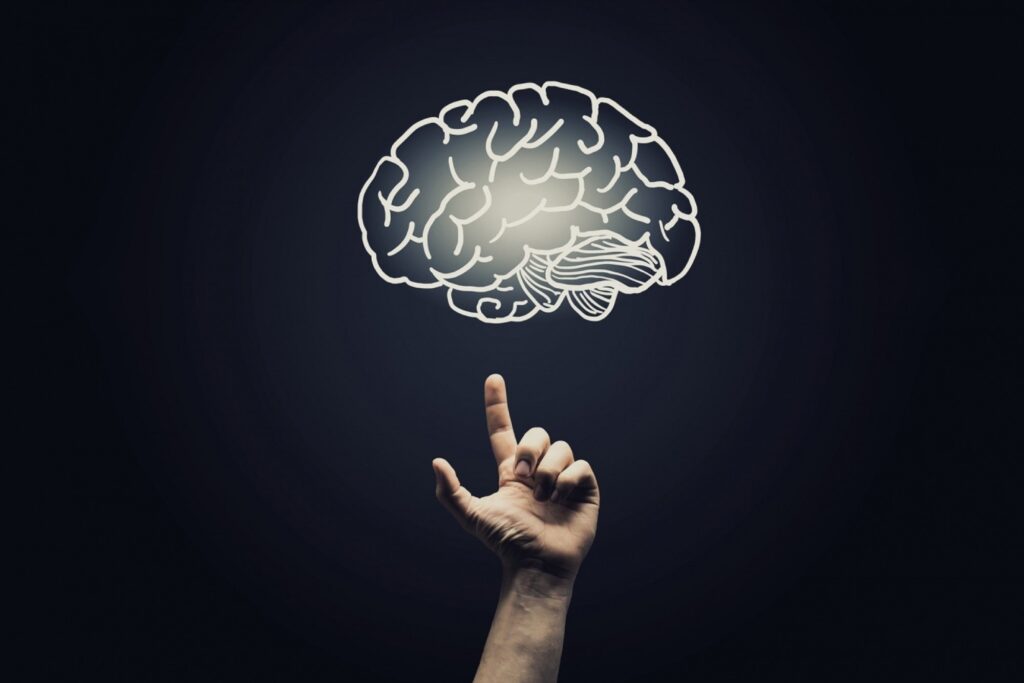
There are two common eating disorders:
These two are the most common eating disorders which can lead to nausea after you eat something.
Anorexia nervosa causes nausea if you starve for a long time.
It may result in acid reflux as well that leads to nausea.Bulimia nervosa forces you to throw out right after the consumption of any food.
So if you have this disorder, you will feel nausea the second after you start eating.
7. Anxiety and Stress
Anxiety and stress can make you feel nauseous after eating a meal. [10]
Too much anxiety and stress are never good for your health.
Along with nausea, they cause many other problems to your health.These health problems include irritable bowel syndrome and gastric ulcers which too, lead to nausea.
The consumption of too many dairy products, alcohol, and caffeine increase the stress level.You should avoid the intake of these too much to ensure yourself some comfort.
RELATED: 11 Effective Home Remedies for Anxiety That Actually Work
8. Motion Sickness
Many people are suffering from motion sickness. [11]
Usually, these people are very much sensitive to the motion and feel nauseated because of this.Also, some people feel nauseated if they are doing something on their cell phones, laptops or reading something out of a book while riding a car.
This particular motion sickness is known as car sickness.
Many people suffer from this problem.Some may get nauseous while they are in the sea just standing or moving towards it.
The motion of water makes them feel uneasy and nauseous. It is known as sea sickness.
9. Vascular
Sometimes the arteries of your intestines can narrow down which creates a restriction in the normal blood flow.
If this happens, you can feel nausea after you eat something following up with intense pain in your upper abdominal area.The situation may get worse.
So if you ever feel intense pain in your abdominal area along with nausea, you should immediately consult a doctor.
10. Cardiac
Experiencing Nausea especially after eating may happen as a warning of a heart attack.
You can’t always take nausea lightly. Instead, you should keep all the symptoms in check to take preventive measures for serious health problems.
11. Pregnancy
Hormonal changes take place randomly in the body of a pregnant woman.
All these changes can cause nausea at any times of the day.
Also when the hormone level gets elevated due to some changes, this may bring changes in the digestive process.
It might also result in nausea. [12]
Hormones during pregnancy can increase acid reflux which may cause nausea.
Also, pregnant women become sensitive to smells during pregnancy and such smells can cause nausea to them as well.
12. Food Allergies
Our bodies are prone to different allergies.
The reaction to these allergies may vary from people to people.
Many of us are sensitive to some foods that cause immediate allergies to our body.Intake of such allergic foods may cause nausea.
Nausea in this case usually occurs a few seconds or minutes after the intake of a meal.
Along with nausea, the allergies may get accompanied by some more symptoms including breathing difficulties and such.
RELATED: 22+ Natural Antihistamines to Prevent Allergy (#6 is Incredible!)
13. Cancer Treatment
Cancer treatments involve many steps including chemotherapy.
It is normal for people going under this therapy to feel nauseous after eating something.
It is as one of the side effects of chemotherapy.
14. Other Medications
People going under any other medications such as antibiotics or any pain relief drugs can also feel nauseated due to the side effects of these medications.
When you Should See a Doctor?
Usually, this condition goes away on its own.
If the reason for nausea is something serious, it will be accompanied by many other symptoms.
When you witness any of such symptoms along with nausea, you might consider seeing a doctor.
- If a child feels nauseous often and also ends up vomiting, you should see a doctor.
- Check if you feel any pain in your stomach or upper abdominal area along with nausea and if the pain seems intolerable or abnormal to you. If it is, you should consult a doctor.
- If there is blood in your vomit, don’t waste any more time and immediately ask a doctor.
- If high fever accompanies with nausea, it also needs a doctor’s attention.
- Severe chest pain or abdominal cramping while feeling nauseous need the doctor’s care as well.
- If you feel dizzy, sleepy or tend to faint when you are feeling nauseous, you should go and consult it with a doctor.
Diagnosis and Treatments
The doctor will then recommend you some diagnosis to get a clear idea of what is causing nausea and other symptoms accompanying it.
Diagnosis:
The diagnosis may include:
- Blood test
- Urine test
- Skin test
- Colonoscopy
- Endoscopy
- Ultrasonogram of your upper abdominal area which involves stomach and intestines
- X-ray of the abdominal area
- A CT scan or an MRI of the abdominal area.
Treatments
The treatment of your problems will depend on the issues you and your body is going through.
After the running of all the necessary diagnosis and viewing of the test results, doctors will determine your treatment.
Some general treatments go for all.
These treatments include:
- proper eating habit
- less consumption of food containing too much fat
- less use of too much alcohol, soft drinks or soda water
And for those who are allergic to some specific food, you should avoid eating them.
It will be better if you consult a doctor before you decide to take medicines regarding any health problems so that the medication doesn’t follow you to the door of nausea or other severe health problems.
RELATED: 17 Foods for Constipation Relief- Simple and Available Ingredients
Some Tips for You
- Avoid the consumption of milk for sometimes to see if it eases nausea
- Try and stick to food that digests easily
- Eat smaller but more frequent meals
- Try chewing some gums or ginger candies
- Try drinking some ginger ale
- Avoid high fibrous food for few days
- Drink water regularly in smaller quantities
Bottom Line
The reasons for nausea as described above will help you to understand it better and will guide you to solve the problem.
With balanced food habits and maintained lifestyle, you can quickly get relief from nausea. Hope this article was helpful to you.
For any queries, please leave a comment in our comments section below.
READ NEXT: 11+ Remedies to Get Rid of Morning Sickness
